11 Questions & A Cup of Coffee: British Infantryman and Best-Selling Author Geraint Jones
Geraint “Gez” Jones deployed three times to Iraq and Afghanistan with the British Army, where he served in the infantry. While he was initially a reservist and attending college, as soon as the war in Iraq started and his friends were deploying, he went active duty. Jones excelled in the military and garnered many accolades. He earned the General Officer Commanding’s Award for Gallantry for his actions in Iraq. Following his tour in Afghanistan, he was selected for the Reconnaissance Platoon, an elite unit inside of his battalion. Following his time in the military, Jones sought work protecting commercial shipping from Somali and Nigerian piracy.
Today, Jones is known for his best-selling books primarily focused on war and its cursory effects, following the journey of either ancient or modern-day soldiers and their fights to survive.
Jones’ most recent book — “Brothers in Arms: Real War. True Friends. Unlikely Heroes.” — was released on May 16, 2019. Coffee or Die caught up with Jones at Black Rifle Coffee Company headquarters in San Antonio, Texas, for our latest edition of 11 Questions & A Cup of Coffee.
This interview has been edited for length and clarity.
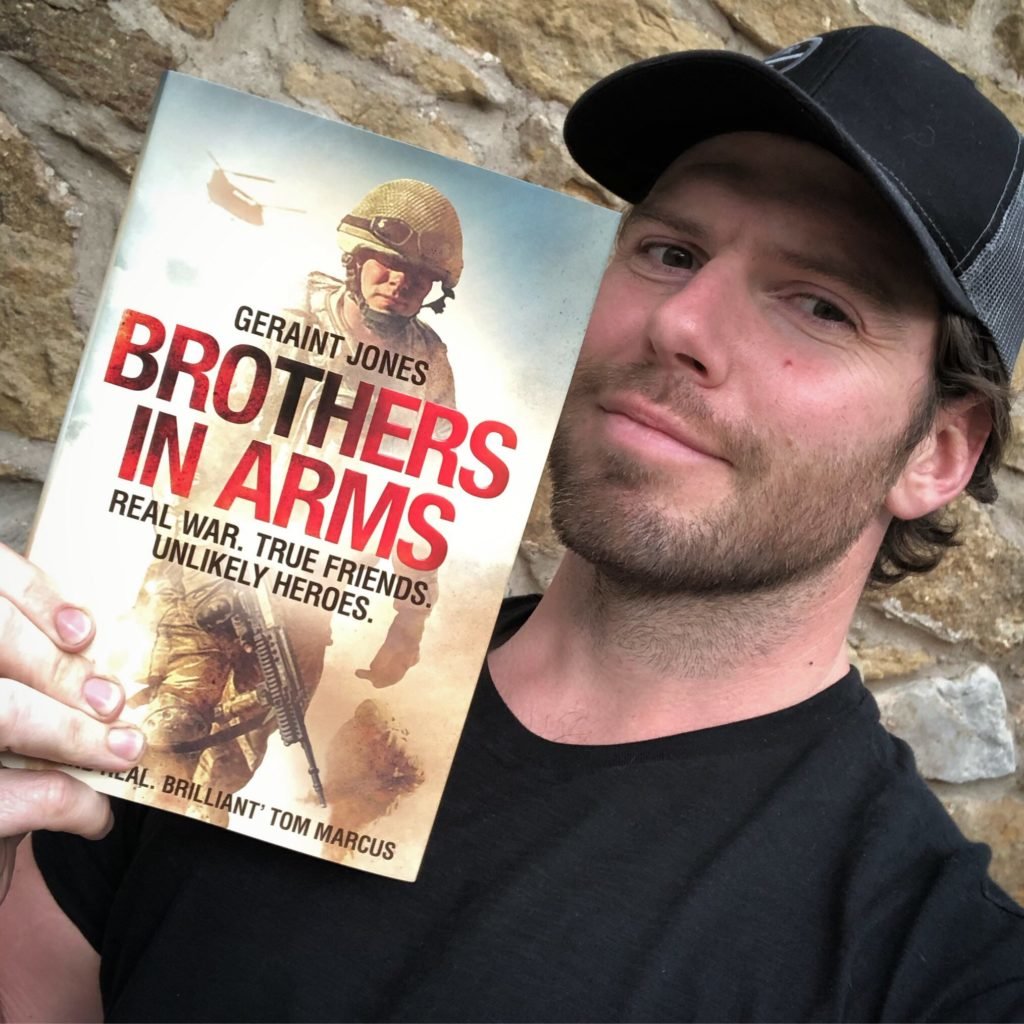
COD: How do you take your coffee?
GJ: I take my coffee black or with some MCT oil or with some coconut oil mixed in there. If I’m doing intermittent fasting, I’ll go with some MCT oil in there. It works well with my writing, that kind of combination.
COD: How do you make your coffee?
GJ: My method of brewing is I say, “Mom, could I have a coffee, please?” and then it magically appears in front of me. No, no — I’m just pretty straight up. I dump it in a cup, I pour hot water on top of it. I’m not like a chemist mixing it all up or any of that stuff.
COD: What’s the most bizarre or extreme place you’ve ever had or made a cup of coffee?
GJ: I suppose probably the most bizarre place is, a lot of you would guess, would probably be the backend of Afghanistan, you know, those kinds of places on the other side of the world. I imagine there’s probably been plenty of times when there’s been a cup of coffee or tea in my hands and there’s someone trying to shoot me.
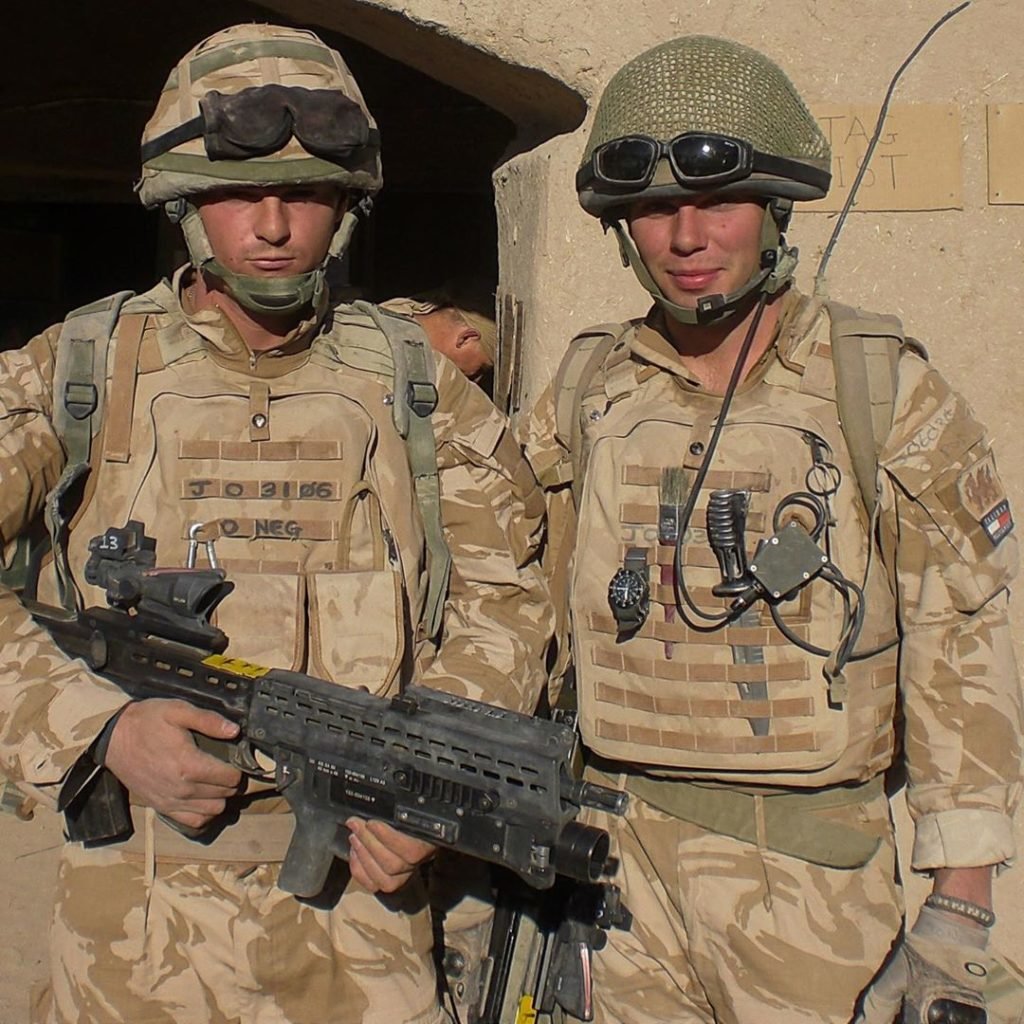
COD: What’s the hardest thing you’ve ever done (physical or mental)?
GJ: I did an exercise called Cambrian patrol. I think I was 17 at the time. I had just joined the reserves, and sergeant major’s like, “You look fit, come away on this exercise.” It’s like NATO’s premier patrols competition in Europe, and it involved basically a few of days of going up and down over mountains carrying a bloody house on my back. And I had no idea what to expect, I had no idea when I was going to finish, and that mental side of it made it tougher. It didn’t stop raining for the entire thing — it was just horizontal lashing rain. I remember at one point there was a part with CB I ran, I had my gas mask on, and I just remember whimpering into my gas mask just thinking like, When is this hell going to end? But as soon as I finished it I thought it was awesome and that I wanted to do it again.
COD: What motivates you to do what you do?
GJ: I think that we have an obligation to live up to our potential, and I think when you’ve had people around you who’ve put time and effort into you, then you owe it to them to do what you can do to the best of your ability.
COD: What do you think is the most misunderstood thing about you or the work you do?
GJ: I think people think that I’m very kind of like gung-ho and pro-military, and I think that stance changed now, I think that was people’s opinions begin with. I think that people are now realizing that just because you are a veteran doesn’t mean that you hate other groups of people. I think that there’s a movement that is coming across with a lot of people who are working in a kind of artistic space now who are veterans, and this a black-and-white image that people have of “the soldier” is starting to be challenged.
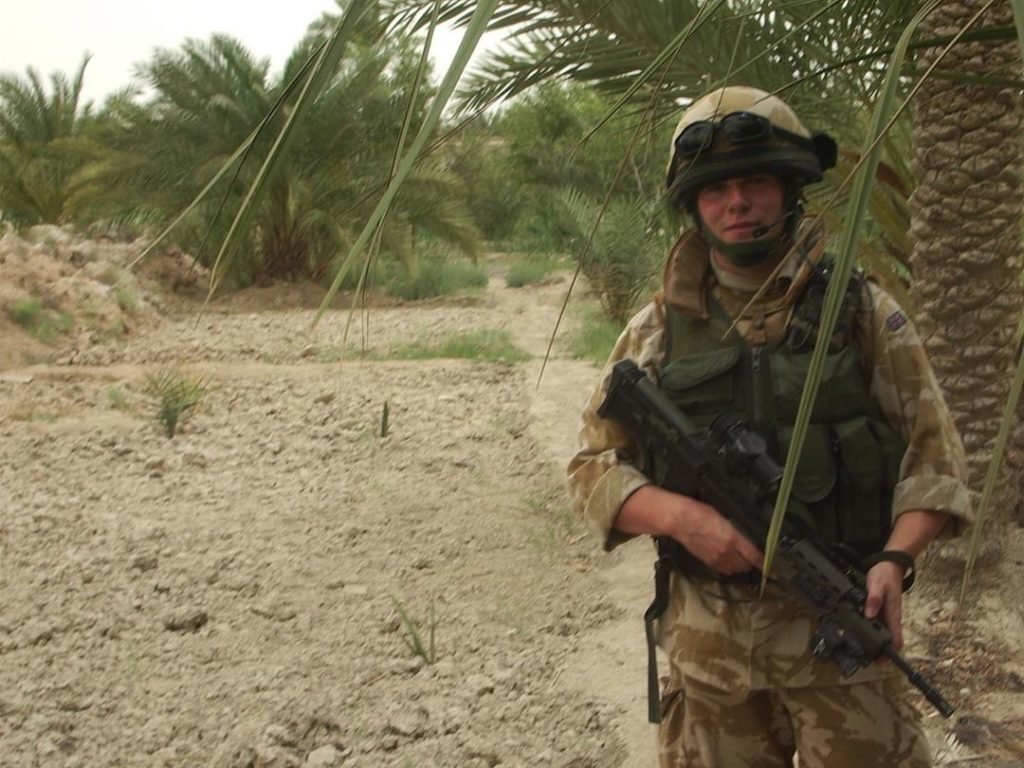
COD: How do you define success?
GJ: I’m not really sure about that one. Honestly, it changes on a daily basis. I used to think that it was very much like knocking off a list of goals — you know, you need to achieve this in the army, you need to achieve this in my book sales, you need to earn this much money. And now I’m starting to think that success is much more being comfortable in your skin on a daily basis.
COD: Mountain view or ocean view?
GJ: Mountain, I’m Welsh. I’m Welsh, I love mountains. We’re basically the dwarves out of “Lord of the Rings.” Gotta have those mountains.
COD: If you could have any superpower what would it be?
GJ: The ability to stop giving a fuck would be a very powerful, very powerful ally, I think. It’s obviously important to be and have some self-criticism, and it’s also important to take advice and criticism from other people, but I think one thing that I suffer with and a lot of people suffer with is you can really start caring about the opinions of people that really don’t matter to you or matter to your life. It can slow you down, it can make you miserable, so if I could get rid of that, that’d be great.
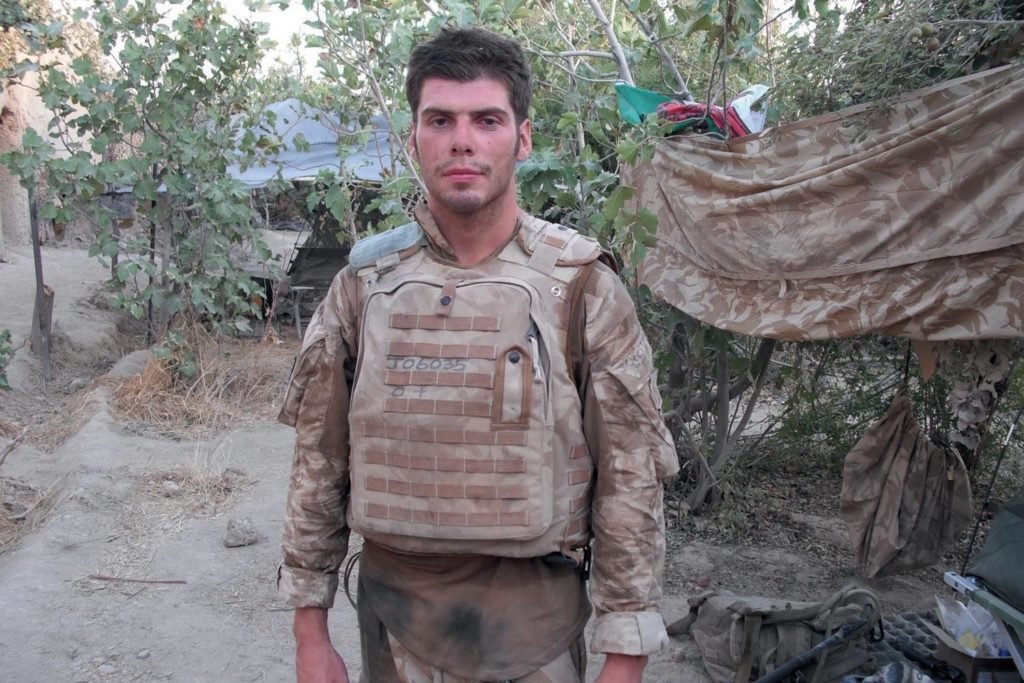
COD: What are your hobbies outside of what you’re known for?
GJ: What am I known for? What I’m known for probably writing and partying, so hobbies outside of those would be — I love the mountains, I love getting up into the mountains, going walking into the mountains. I love DJing. DJing has been a passion of mine since I was probably like 16 years old, and there was a junction in my life where it was the army or going into music. DJs didn’t make any money at that time, so I thought the army would be a better choice, and now I have friends that make millions of pounds for making music, so I might’ve chose wrong on that one.
COD: On a scale of 1 to 10, how confident are you that you could survive a post-apocalyptic world? (1= I’m dead on day one, 10 = I’m pretty much going to be the ruler of the new world order)
GJ: While I don’t think that I’m gonna make the ruler of the new world order because I don’t like being the boss. I’m quite happy being down in the hierarchy, like kind of lance corporal level where I get out of the shittiest jobs, like probably dismembering the people that we’ve just captured to eat. I can get out of that stuff.
I think though that I’d probably end up getting honey-trapped, and there’d be some beautiful babe who I’m gonna die trying to save or she’s going to lure me into the like horrible cannibal factory that they’ve got going on, and I’ll end up getting my liver eaten because I was trying to get my dick sucked. So that’ll be it.
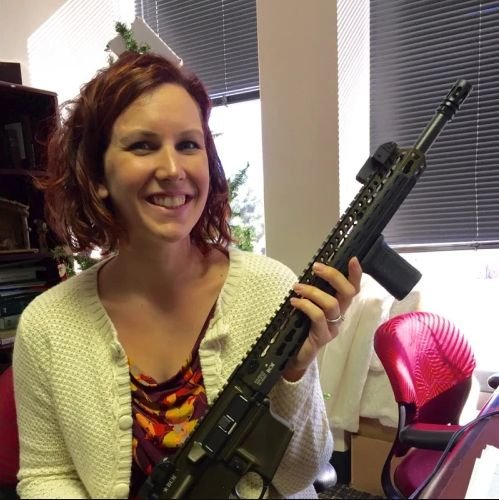
Katie McCarthy is the managing editor for Coffee or Die Magazine. Her career in journalism began at the Columbus (Georgia) Ledger-Enquirer in 2008, where she learned to navigate the newsroom as a features reporter, copy editor, page designer, and online producer; prior to joining Coffee or Die, she worked for Outdoor Sportsman Group as an editor for Guns & Ammo magazine and their Special Interest Publications division. Katie currently lives in Indiana with her husband and two daughters.
BRCC and Bad Moon Print Press team up for an exclusive, limited-edition T-shirt design!
BRCC partners with Team Room Design for an exclusive T-shirt release!
Thirty Seconds Out has partnered with BRCC for an exclusive shirt design invoking the God of Winter.
Lucas O'Hara of Grizzly Forge has teamed up with BRCC for a badass, exclusive Shirt Club T-shirt design featuring his most popular knife and tiomahawk.
Coffee or Die sits down with one of the graphic designers behind Black Rifle Coffee's signature look and vibe.
Biden will award the Medal of Honor to a Vietnam War Army helicopter pilot who risked his life to save a reconnaissance team from almost certain death.
Ever wonder how much Jack Mandaville would f*ck sh*t up if he went back in time? The American Revolution didn't even see him coming.
A nearly 200-year-old West Point time capsule that at first appeared to yield little more than dust contains hidden treasure, the US Military Academy said.












